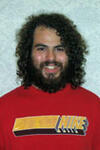Barry Bradlyn
Ph.D. 2015, Yale University
In this thesis we examine the viscous and thermal transport properties of chiral topological phases, and their relationship to topological invariants. We start by developing a Kubo formalism for calculating the frequency dependent viscosity tensor of a general quantum system, both with and without a uniform external magnetic field. The importance of contact terms is emphasized. We apply this formalism to the study of integer and fractional quantum Hall states, as well as p+ip paired superfluids, and verify the relationship between the Hall viscosity and the mean orbital spin density. We also elucidate the connection between our Kubo formulas and prior adiabatic transport calculations of the Hall viscosity. Additionally, we derive a general relationship between the frequency dependent viscosity and conductivity tensors for Galilean-invariant systems. We comment on the implications of this relationship towards the measurement of Hall viscosity in solid-state systems.
To address the question of thermal transport, we first review the standard Kubo formalism of Luttinger for computing thermoelectric coefficients. We apply this to the specific case of non-interacting electrons in the integer quantum Hall regime, paying careful attention to the roles of bulk and edge effects. In order to generalize our discussion to interacting systems, we construct a low-energy effective action for a two-dimensional non-relativistic topological phase of matter in a continuum, which completely describes all of its bulk thermoelectric and visco-elastic properties in the limit of low frequencies, long distances, and zero temperature, without assuming either Lorentz or Galilean invariance, by coupling the microscopic degrees of freedom to the background spacetime geometry. We derive the most general form of a local bulk induced action to first order in derivatives of the background fields, from which thermodynamic and transport properties can be obtained. We show that the gapped bulk cannot contribute to low-temperature thermoelectric transport other than the ordinary Hall conductivity; the other thermoelectric effects (if they occur) are thus purely edge effects. The stress response to time-dependent strains is given by the Hall viscosity, which is robust against perturbations and related to the spin current.
Finally, we address the issue of calculating the topological central charge from bulk wavefunctions for a topological phase. Using the form of the topological terms in the induced action, we show that we can calculate the various coefficients of these terms as Berry curvatures associated to certain metric and electromagnetic vector potential perturbations. We carry out this computation explicitly for quantum Hall trial wavefunctions that can be represented as conformal blocks in a chiral conformal field theory (CFT). These calculations make use of the gauge and gravitational anomalies in the underlying chiral CFT.
